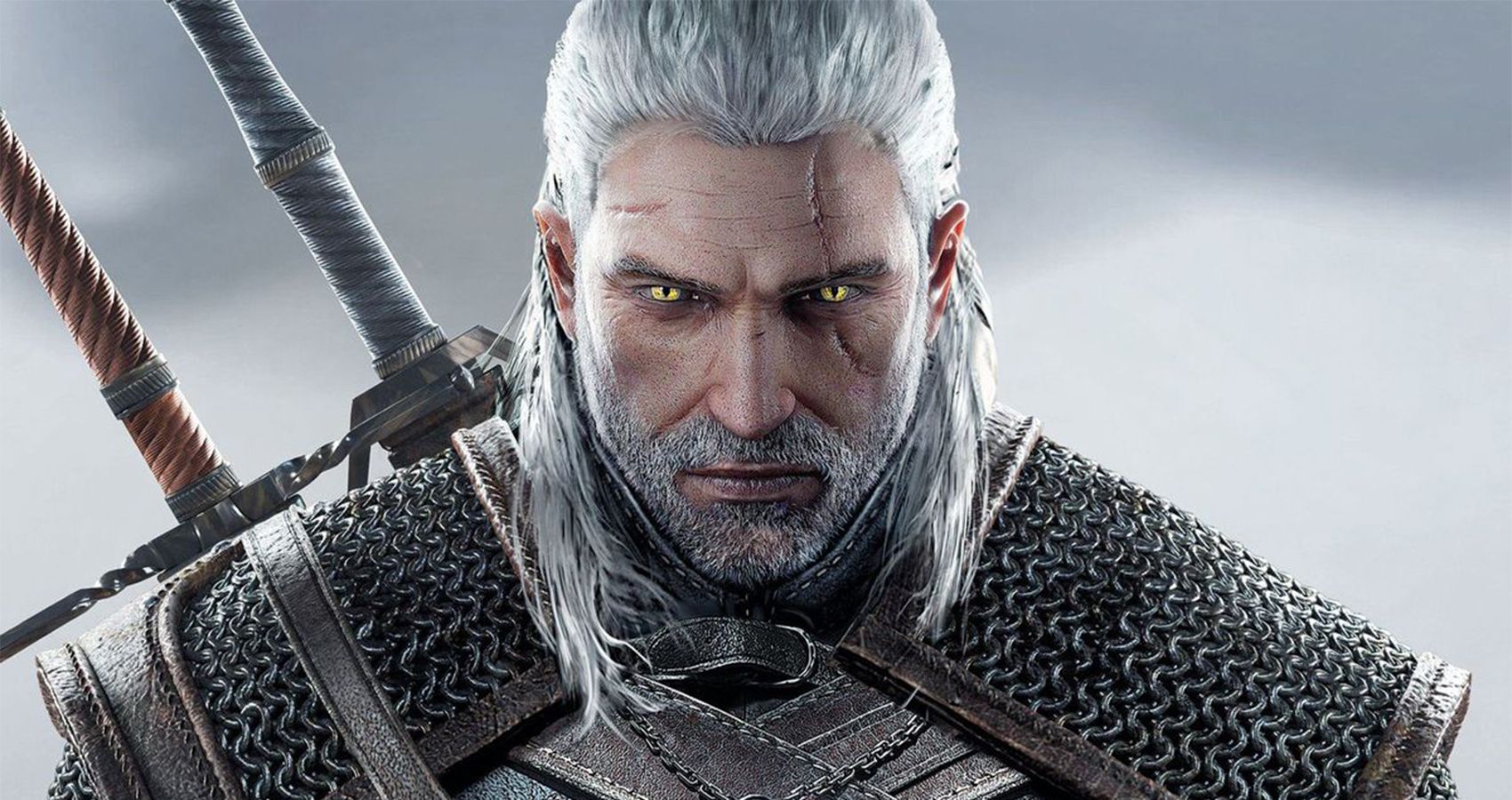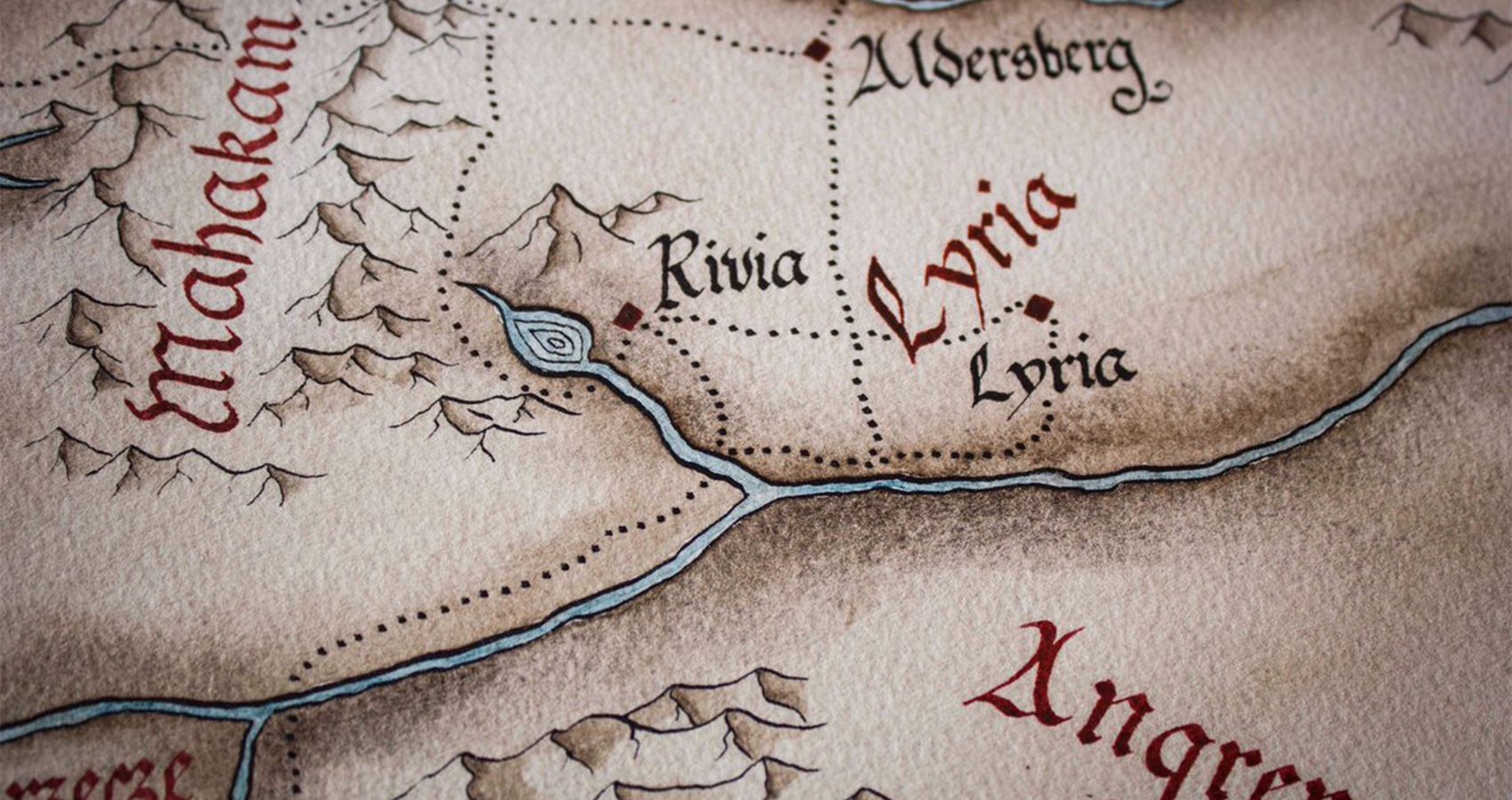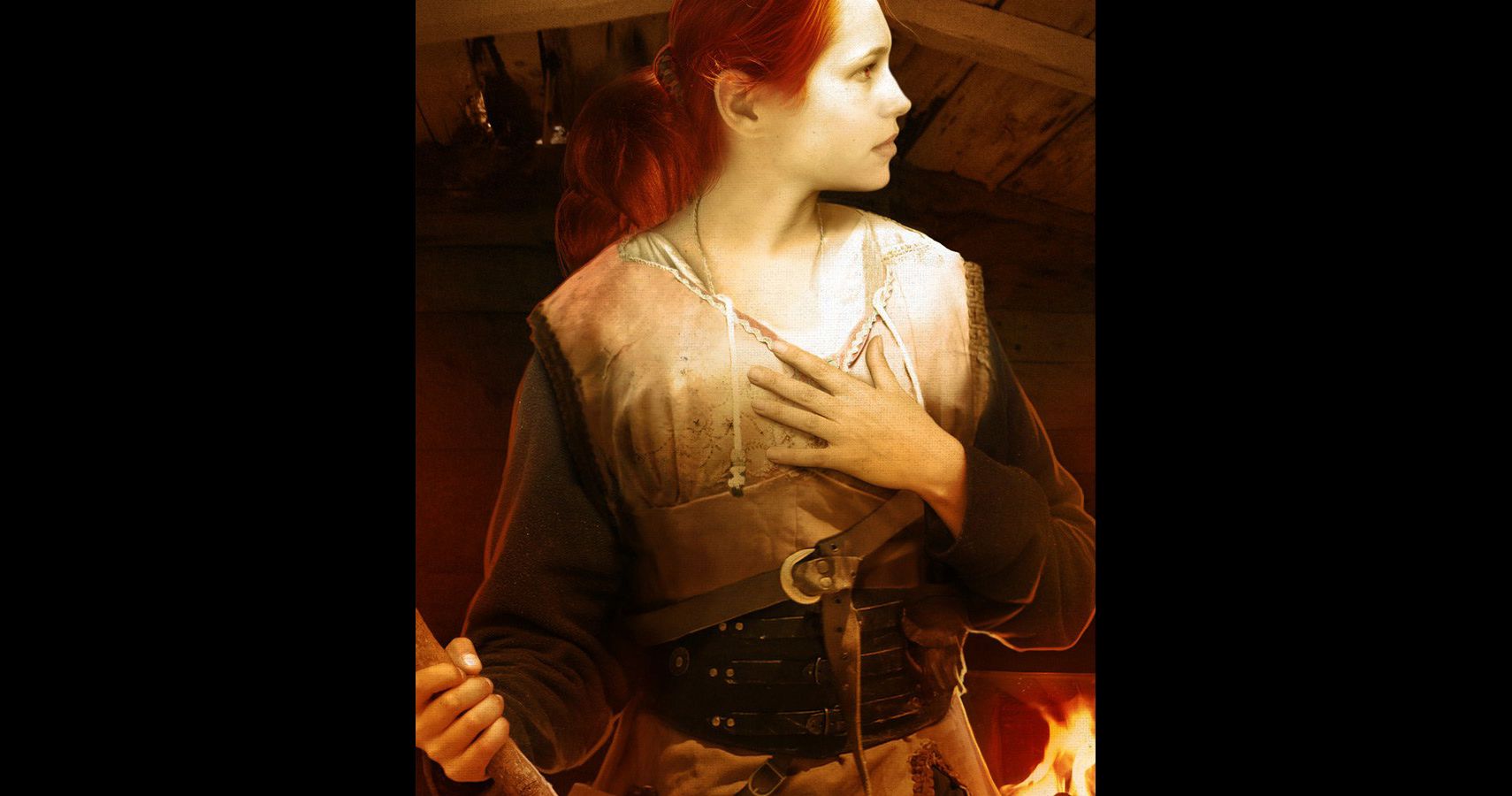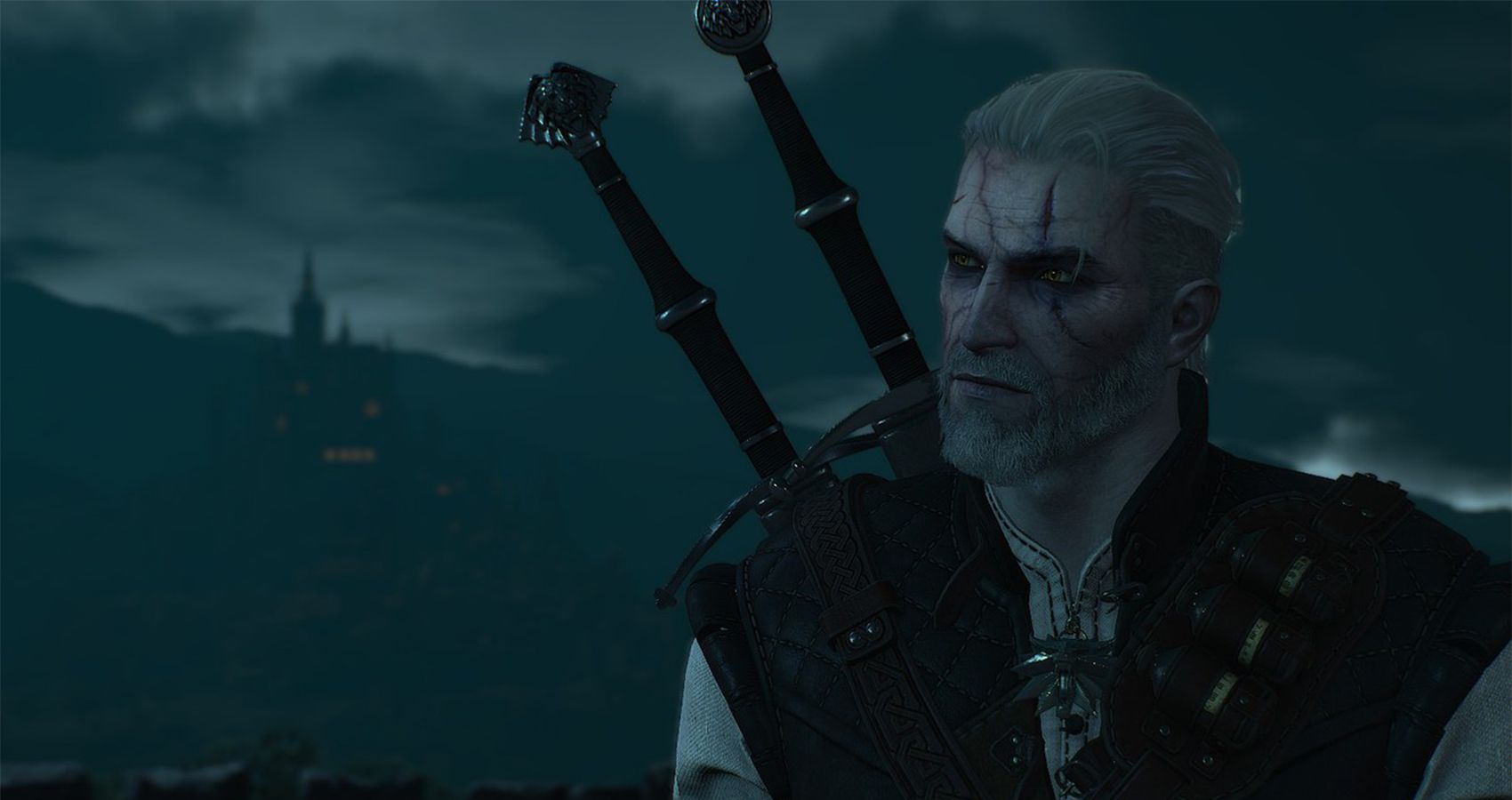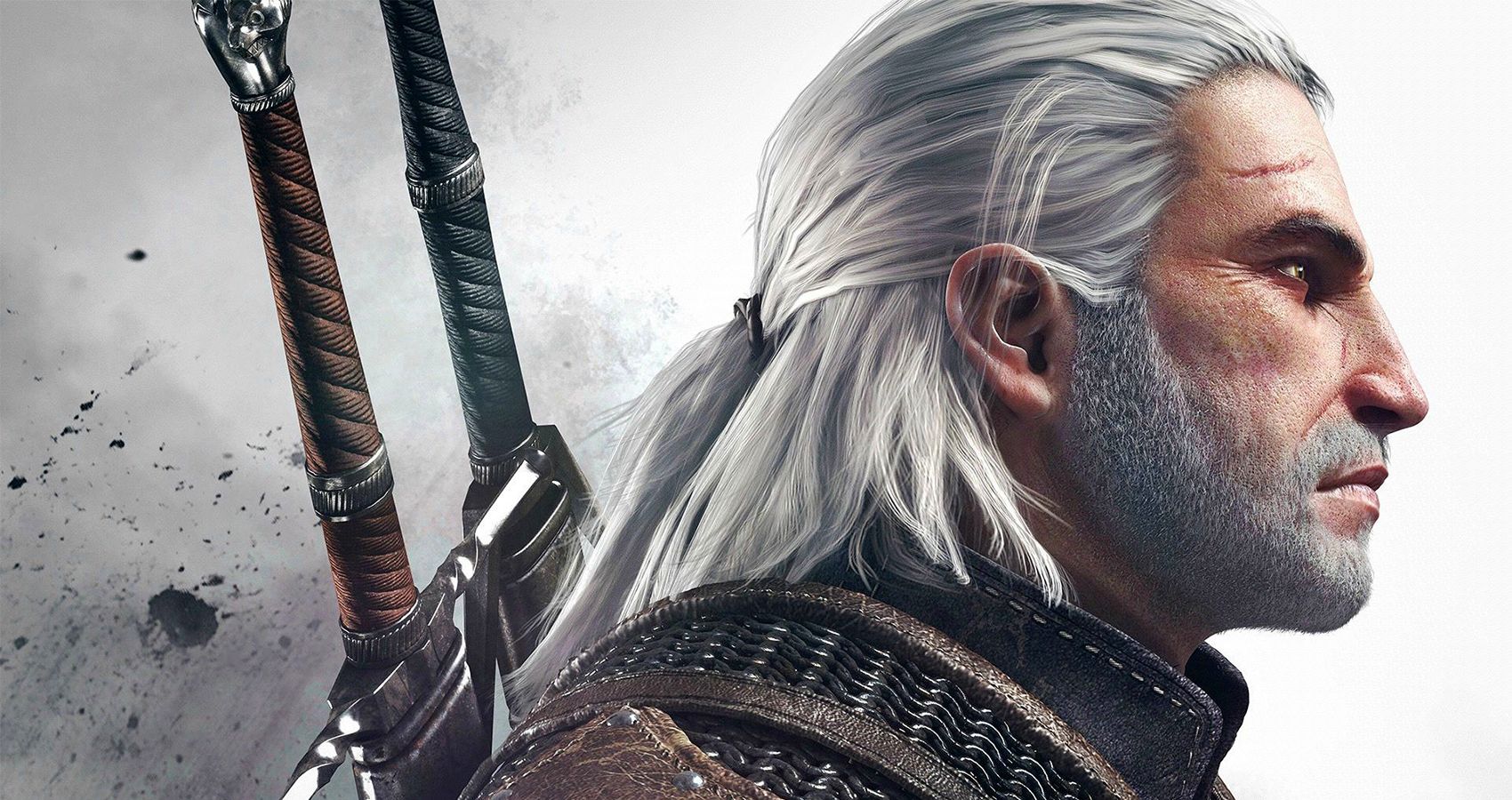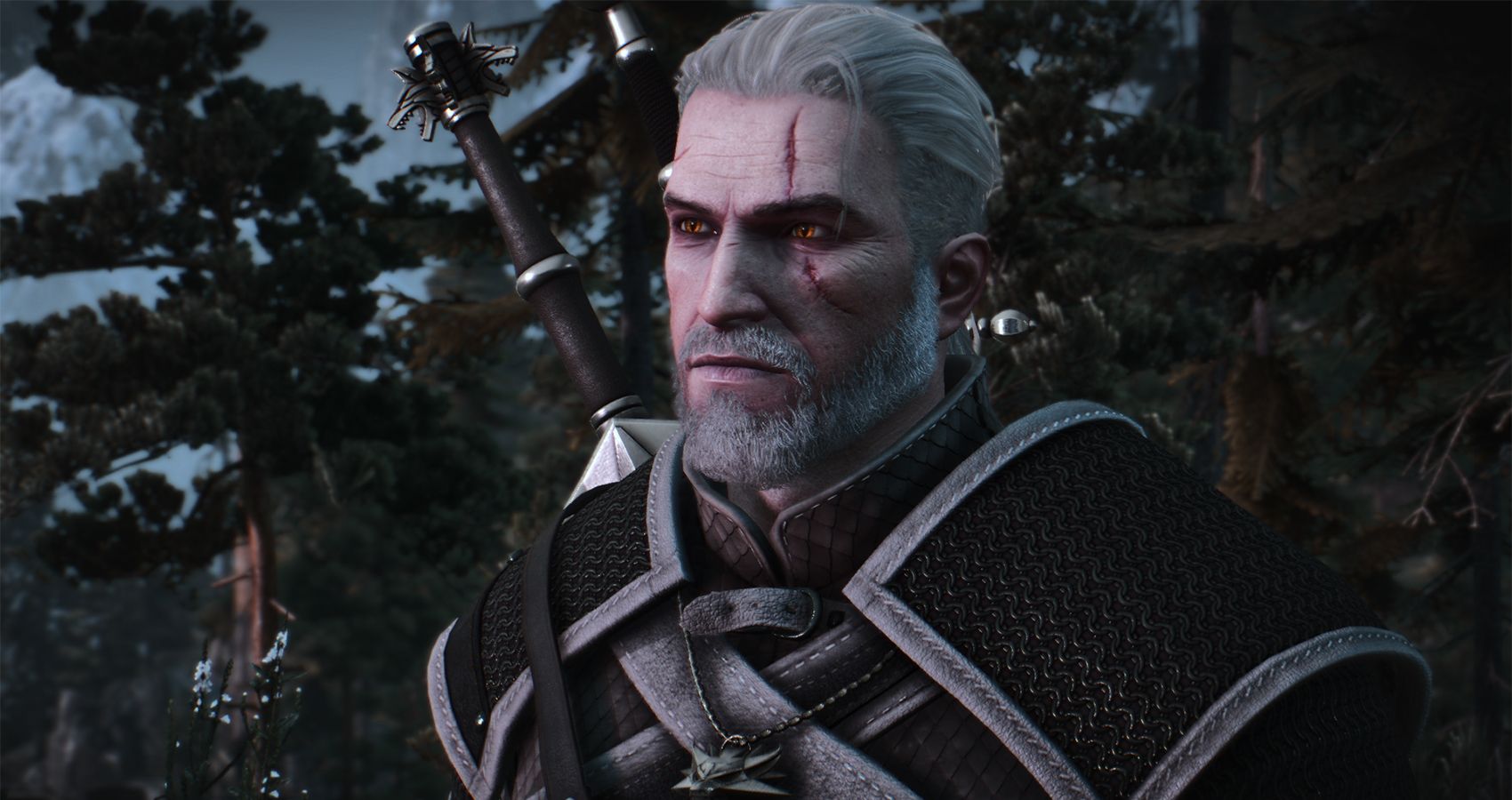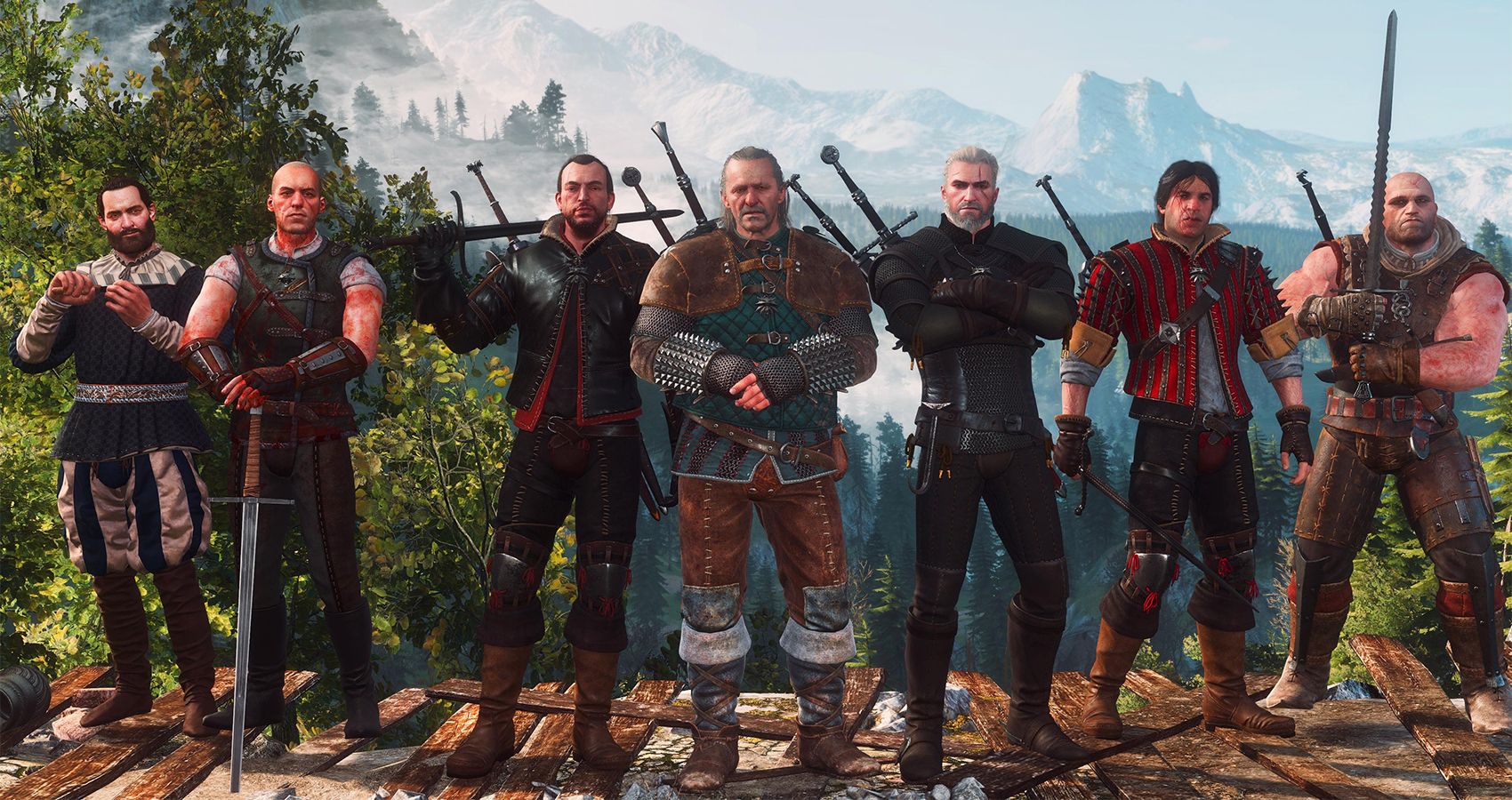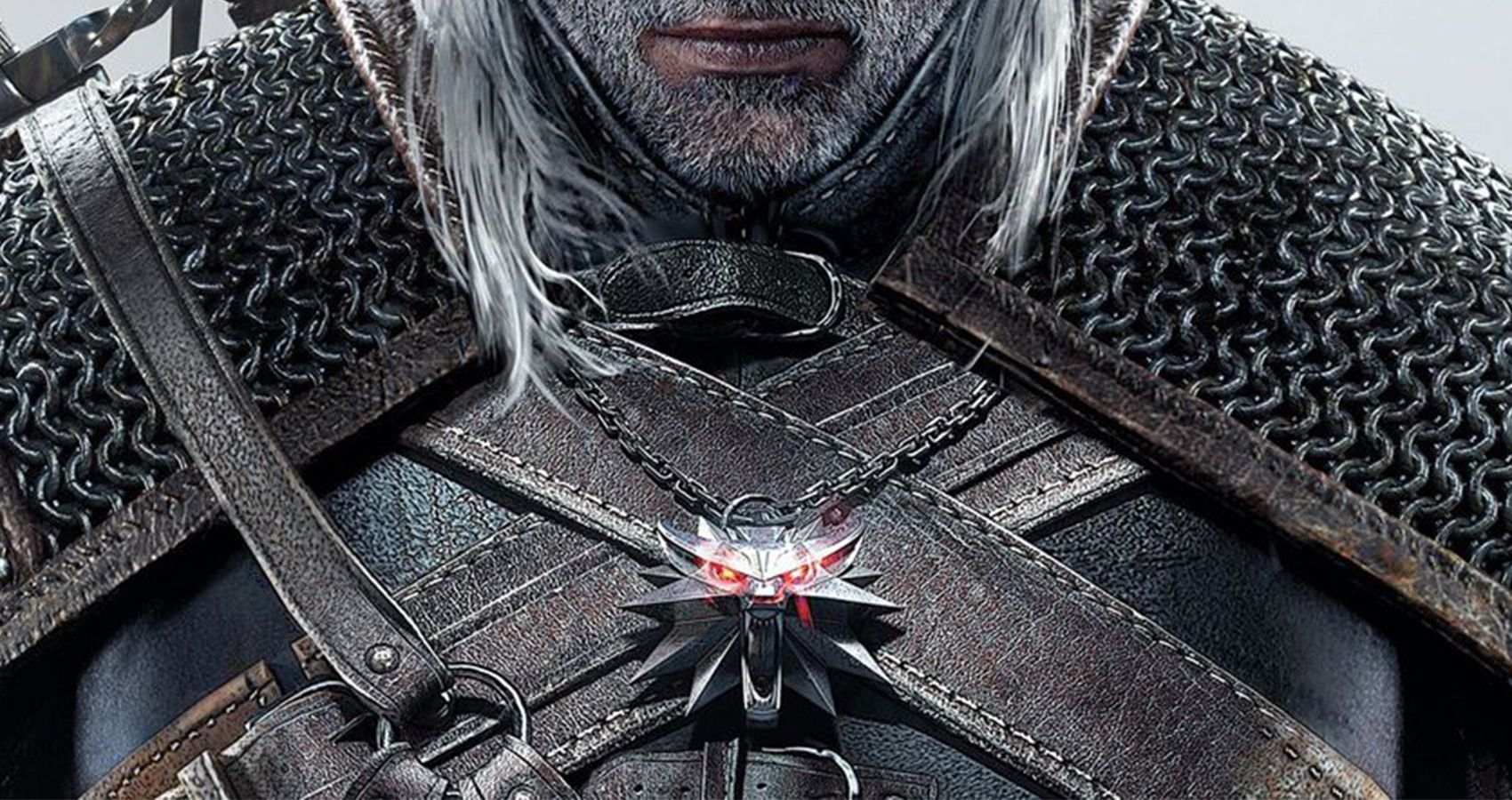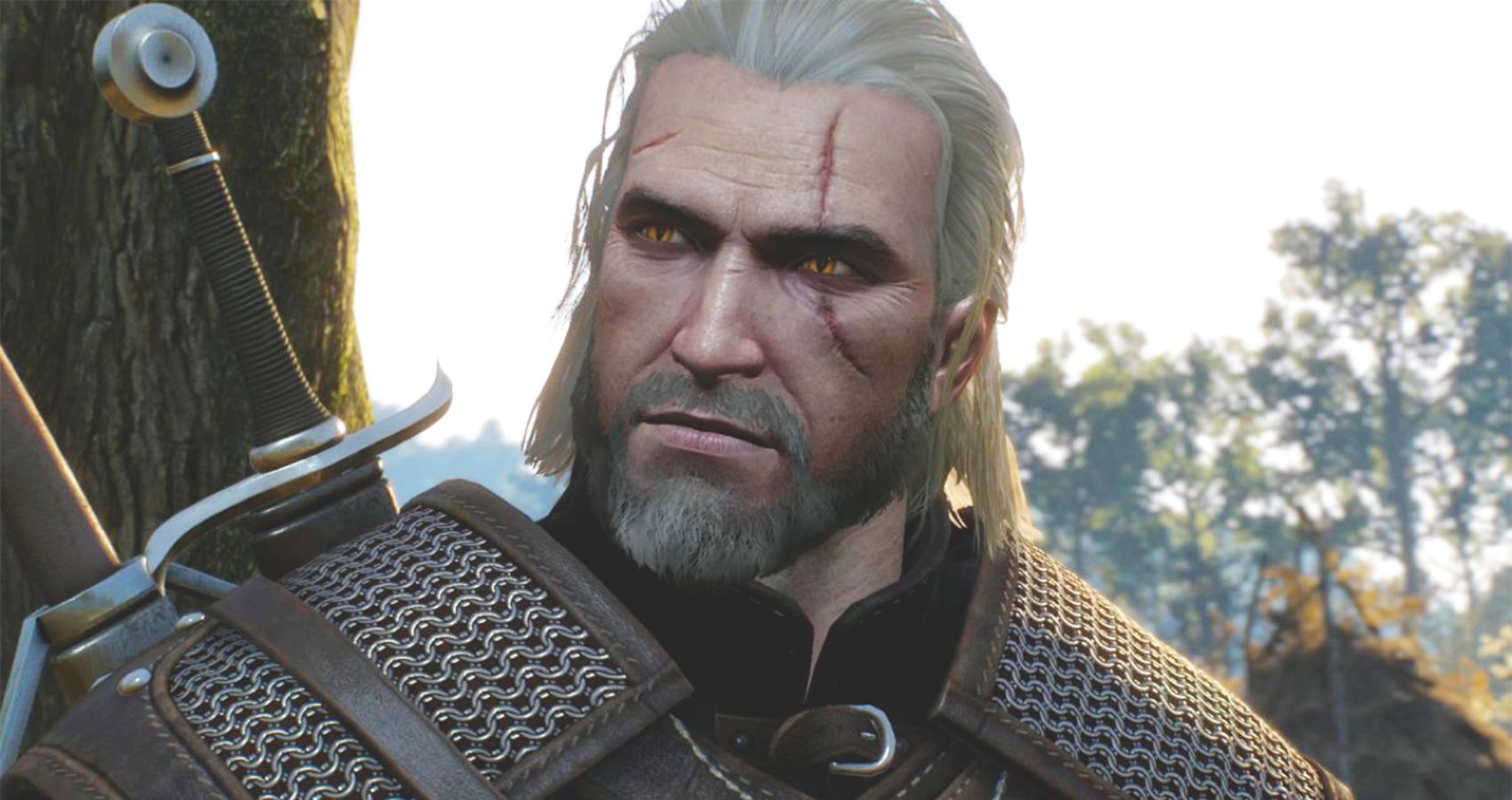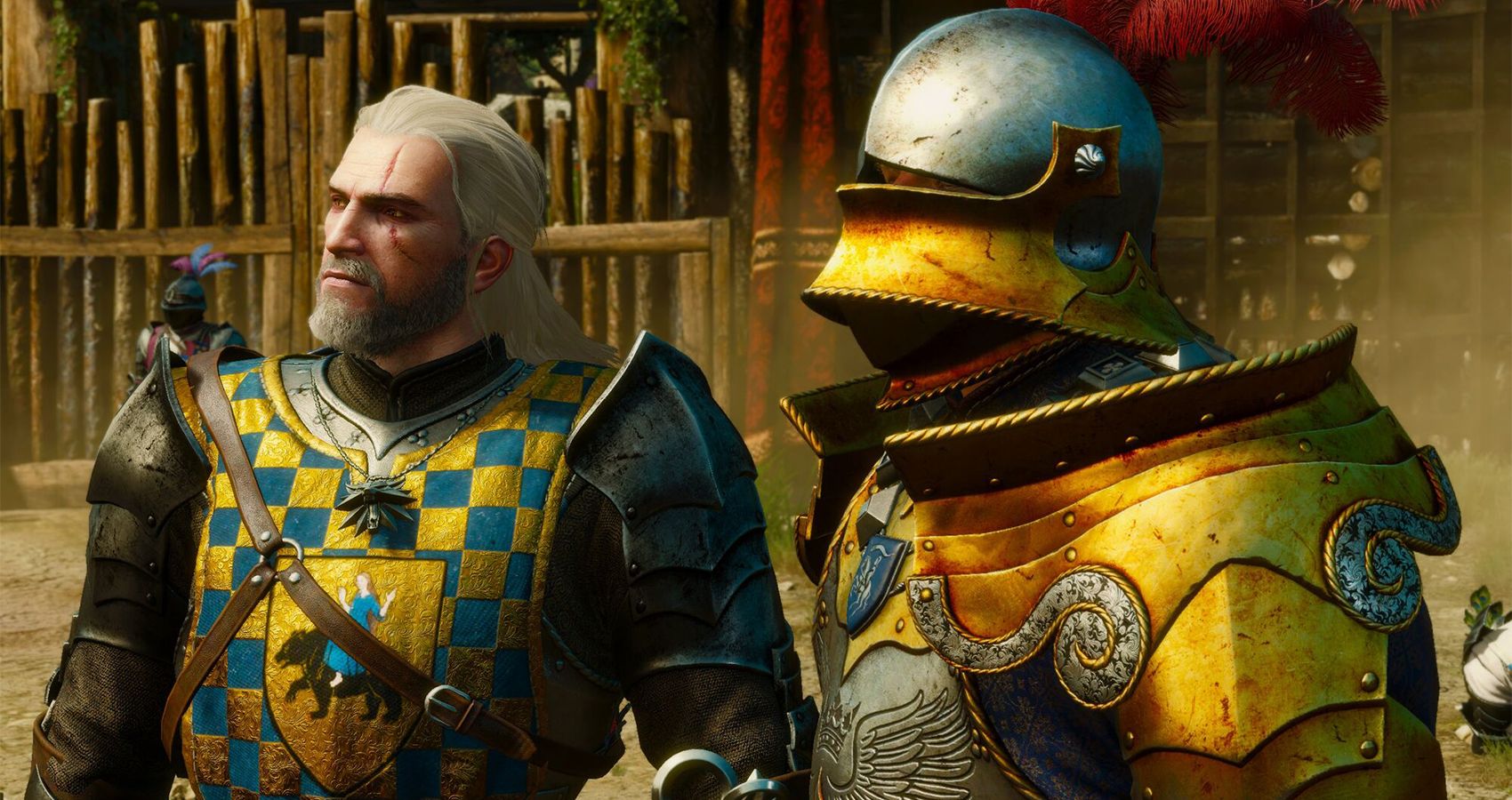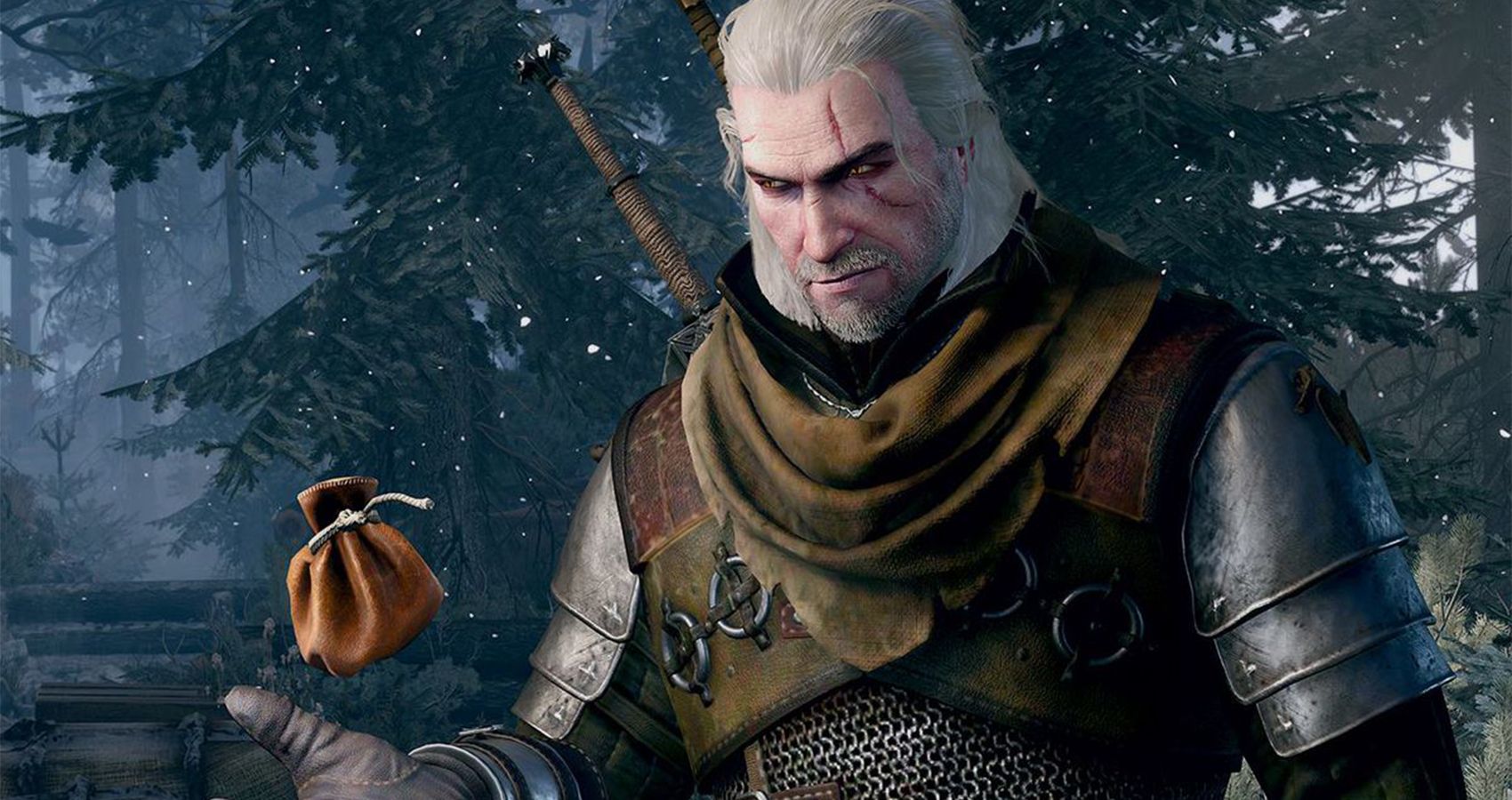Geralt has become something of a legend in the world of The Witcher series. Perceived as both a savior and threat to mankind he has built a reputation for being an effective and brutal monster hunter.
But there are a lot of things about this silver-haired hero that fans might not know. Because his character is based off a book series there are some things that have changed from the books, only take place in the games, or there's interesting backstory that readers are aware of, but the gamers aren’t.
10 He’s Not From Rivia
In both the books and the games Geralt frequently refers to himself or is referred to by others as “Geralt of Rivia” but it turns out that he’s not a native of Rivia. In the book The Witcher: Baptism Of Fire he explains that he chose the birthplace of Rivia to help him gain confidence with potential clients.
Being a native of where the Queen resides gives clients a sense of comfort that wouldn’t come from knowing he’s actually from the sticks of Kaedwen. In order to sell this falsehood, Geralt developed a Rivia accent and changed his name to Geralt Roger Eric du Haute-Bellegarde.
9 His Mother Is A Sorceress
His mother Visenna is never present in the games and is only vaguely mentioned in passing. From the books, we learn that she is a powerful sorceress and a druid. This is notable because humans who develop magical powers typically lose their fertility and it’s confirmed she was a magic user when she gave birth to Geralt.
Sometimes Sorceresses and Druids can find a loophole by using their magic to counteract the infertility which is likely what she did. His father was a monster hunter that helped her kill a Koshchey.
8 Geralt Is Unique Amongst Witchers
The Trial of the Grasses is a ritual that’s meant to strip away a person’s weaknesses and replace them with strengths through the consumption of highly toxic alchemical substances. Many die during the process and the few that survive develop greater strength, speed, and a proclivity for certain skills.
Geralt is a special case where, for whatever reason, he came out stronger and faster than any other Witcher. It could be because his mother was a sorceress and his father a powerful monster hunter or it could also be that he was subjected to other experiments that resulted in his hair turning white.
7 He’s Pushing 100
Geralt is really old for someone running around hunting and killing powerful monsters. Though his exact age is never given he has mentioned in passing that he’s in his late 90’s. Witchers are known to have expanded lifespans as a result of the Trial of Grasses which doesn’t make this all that surprising.
But what is surprising is that he’s managed to live that long. Being a Witcher is a dangerous line of work that involves facing down dangerous creatures and drawing the wrath of various powerful humans. It’s highly likely no Witcher has ever died of old age and it’s impossible to know how long they live, but given Geralt’s skill it’s fair to say he may very well be the oldest Witcher to ever live.
6 Butcher of Blaviken
The life of a Witcher is a hard one and often draws the ire and suspicion of those they save, after all how can one man be capable of killing the monster that killed half the town? This susicion often deepens when Witchers resort to controversial tactics to get the job done.
Geralt encountered this problem when he killed a gang of assassins in broad daylight. The gang intended to lay siege to a mage’s tower which would have resulted in many people losing their lives, so Geralt killed them early to prevent this. But for the townsfolk it looked like he went mad and slaughtered a group of innocent people in a marketplace, thus earning him the title Butcher of Blaviken.
5 Last Of His Kind
Given incidents like the one mentioned above some have come to distrust the Witchers and formulate wild conspiracies about their actions.
This led to various factions raiding the Witchers’ strongholds and destroying the instructions to perform the Trail of the Grasses ritual, thus preventing the creation of new Witchers. As a result, the Witchers are a dying breed and Geralt is one of the last of their kind.
4 The Wolf Medallion Is His Second
The wolf medallion players see on Geralt in the games is actually the second medallion he’s owned. In the book The Witcher: Tower Of Swallows he gave his first medallion to a half-elf named Shirru as part of a ruse, Shirru didn’t take the bait and ended up stealing the medallion. Later Shirru was captured and executed by fire causing the medallion to melt.
For a brief period of time, Geralt had to make do with a lesser version of the medallion before he could obtain the second one from Ciri.
3 Eye Scar Isn’t In The Books
The familiar eye scar that Geralt sports in the games was not pulled from the books but was actually given to him by the developers at CD Projekt Red. The developers stated that part of the reason they gave him the eye scar was to make him stand out more from the other characters and to give him a more intimidating appearance.
It wasn’t until the third game that it’s revealed he got the scar after fighting a Cockatrice, an event that never happened in the books.
2 Sir Ravix Of Fourhorn
Another name Geralt is known for is his alias Sir Ravis of Fourhorn. He adopted the persona to attend Princess Pavetta’s 15th birthday gala to provide security. Queen Calanthe provided him with the name, a fake coat of arms of a woman riding a bear against a yellow background, and was placed in the royal records as a knight.
It’s an alias he would use once more in The Witcher 3: Wild Hunt during a quest where he participates in the knight’s tourney. The player has the option of adopting this persona to participate in the competition.
1 The Witcher’s Code Doesn’t Exist
Many times Geralt and other Witchers will refer to the Witcher’s Code citing it as a reason they do or don’t do something. It turns out the Witcher’s Code is a fabrication to give Witchers a scapegoat for tasks they don’t want to do or to justify certain demands they have for a job.
In fact, there are only a few guidelines Witchers are encouraged to follow and mostly relate to their conduct in public and how they interact with clients. By and large a Witcher is free to do what they want and have very few restrictions on what they can or can’t do.

